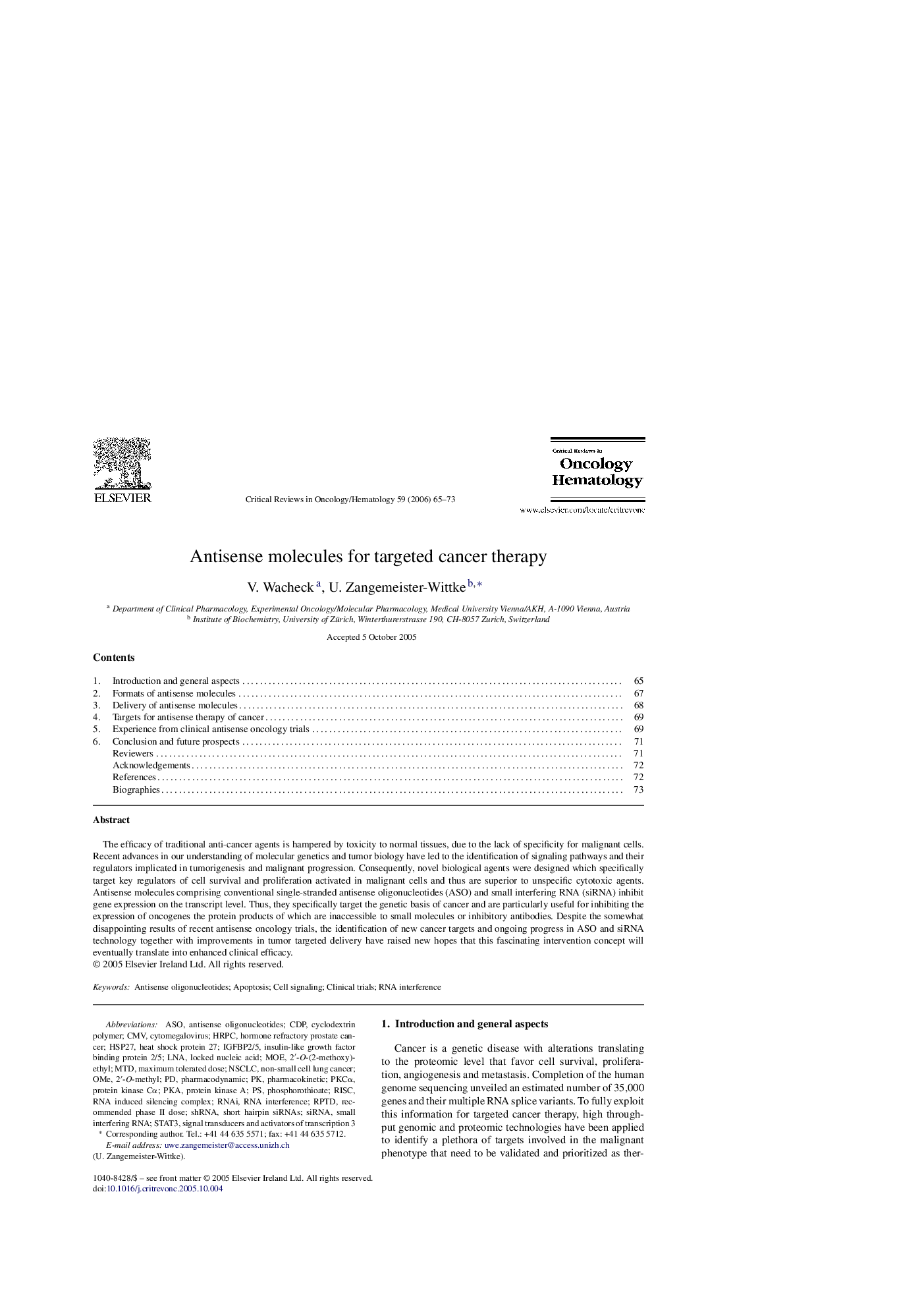| Article ID | Journal | Published Year | Pages | File Type |
|---|---|---|---|---|
| 3330458 | Critical Reviews in Oncology/Hematology | 2006 | 9 Pages |
The efficacy of traditional anti-cancer agents is hampered by toxicity to normal tissues, due to the lack of specificity for malignant cells. Recent advances in our understanding of molecular genetics and tumor biology have led to the identification of signaling pathways and their regulators implicated in tumorigenesis and malignant progression. Consequently, novel biological agents were designed which specifically target key regulators of cell survival and proliferation activated in malignant cells and thus are superior to unspecific cytotoxic agents. Antisense molecules comprising conventional single-stranded antisense oligonucleotides (ASO) and small interfering RNA (siRNA) inhibit gene expression on the transcript level. Thus, they specifically target the genetic basis of cancer and are particularly useful for inhibiting the expression of oncogenes the protein products of which are inaccessible to small molecules or inhibitory antibodies. Despite the somewhat disappointing results of recent antisense oncology trials, the identification of new cancer targets and ongoing progress in ASO and siRNA technology together with improvements in tumor targeted delivery have raised new hopes that this fascinating intervention concept will eventually translate into enhanced clinical efficacy.
